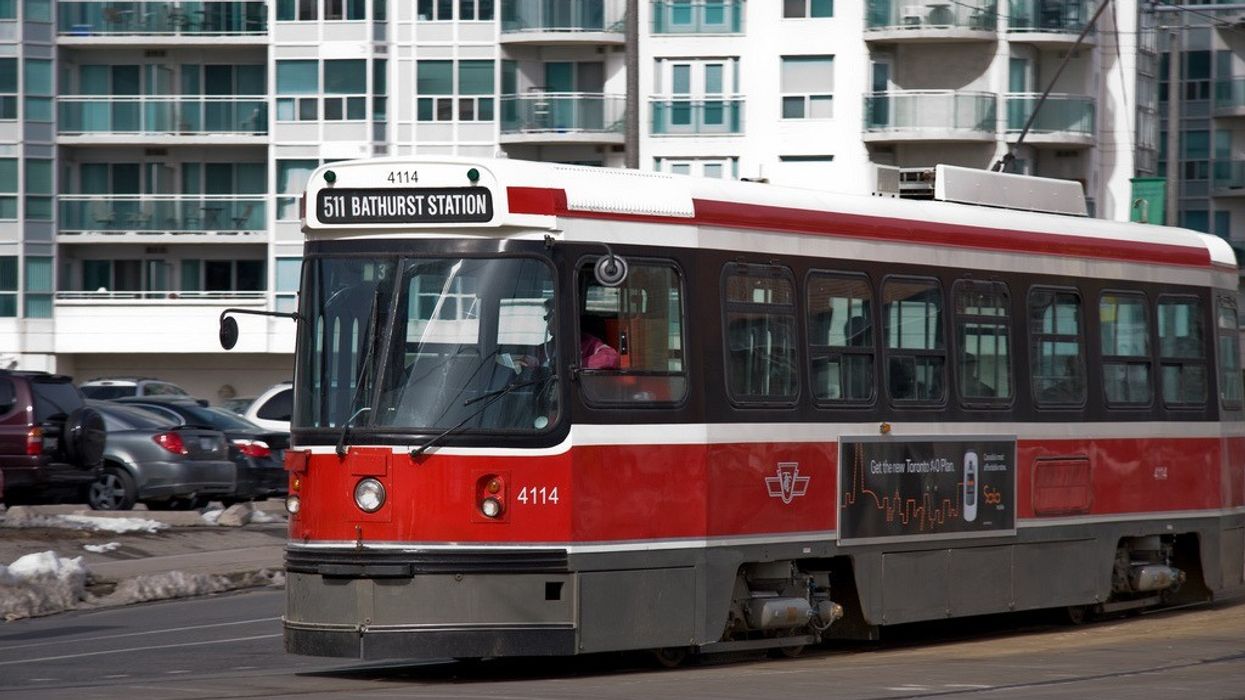Unless the TTC is properly funded to address the huge backlog in state of good repair, users will see many more of the kinds of problems like Thursday's massive two-and-a-half service disruption, says former Toronto mayor David Miller.
And you can't blame it on Thursday's first real snowfall in Toronto.
According to TTC Spokesperson Stuart Green the cause of the major problems on Line 2 of the Toronto subway system were not connected to either cold or snow.
READ: TTC Subway Closures: Several Stations On Line 1 Closed (Nov. 9-10)
Writing on Twitter, Green noted: "It was not weather-related, but we understand how the conditions would serve to frustrate a bad situation. With apologies for the inconvenience."
TTC CEO Rick Leary issued a statement about the significant delay, saying it was caused by "corroded cable coming into contact with fencing at track level on the Bloor Viaduct, resulting in a shorting out of electrical power."
"The circuit breaker system ultimately worked as designed — it cut power to prevent any more serious damage to our system or significant damage to the bridge structure," he continued. "As a result, we were unable to reestablish power on Line 2 for approximately 2.5 hours."
"This particular part of Line 2 is 53 years old and is already the subject of a thorough review of the entire line's infrastructure," he explained.
READ: TTC Expands Discount Program To Make Public Transit More Accessible
Commenting on Twitter, Miller pointed out that "Not investing in assets [like the TTC] is a deficit just like a fiscal one - and has serious consequences."
Miller served as Toronto's 63rd mayor from 2003 to 2010.
Back in July, an advocacy group called TTCriders decried the “chronic underfunding” that they say is to blame for the overcrowding, long wait times and regular delays that are keeping many residents from utilizing public transit.
The TTC’s per ride operating subsidy is the lowest in North America.
The advocacy group released what they called a "bolder vision" of the TTC's ridership growth strategy. It calls for the introduction of dedicated lanes and signal priority on all streetcar routes and 20 of the city’s busiest bus routes as well as a 25 per cent increase in service across the board.
Earlier this week, the City of Toronto and the Conservative provincial government reached a deal which will see city council endorse Premier Doug Ford’s transit plan for an Ontario Line through the city in exchange for the province abandoning its proposed takeover of the TTC subway network.
READ: Ontario Line: Ford’s Transit Scheme Is Barely On Track
Yesterday, Leary was forthright in his statement that the Line 2 power shortage happened at "the worst possible time — rush hour."
He vowed that TTC staff are taking all necessary actions to prevent something like this from happening again.
"The full assessment will be presented to the Board in Q4 2020. This will include ensuring that cable replacements are covered in this area for 2020-2023 state-of-good repair planning."
Green said Line 1 endured problems as a result of the overflow from Line 2.





















